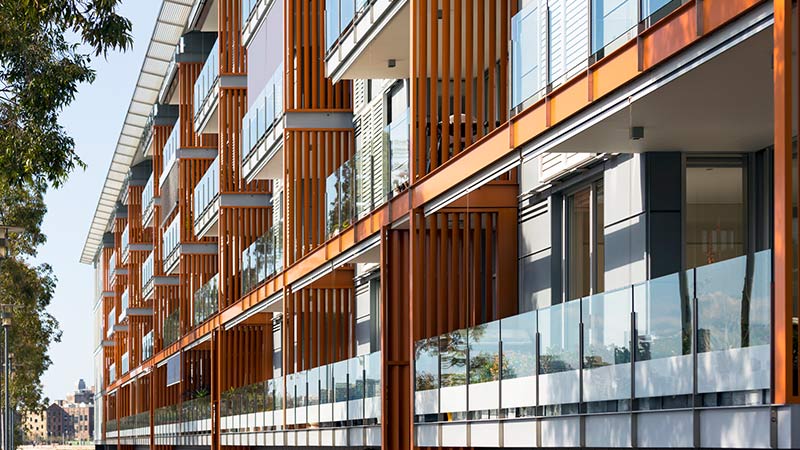If you’re considering an investment strategy that includes property in Australia, one of the things worth understanding is the difference between negative and positive gearing, and the possible benefits and risks of both.
What is gearing?
The term ‘gearing’ basically means borrowing money to invest. You can borrow money to invest in a property, a business, shares or managed funds. In this article we’re focusing on gearing property.
The income you earn from an investment property is either negatively or positively geared.

How does negative gearing work?
When an investment property has negative gearing, it means the interest payments and other property-related costs you incur are higher than the rental income you receive from that property. This means it’s likely you’re making an income loss on your investment property.
As an example, if you’re renting out an investment property for $400 per week, but your mortgage repayments and other property-related costs are $450 per week, then you are making a loss of $50 per week. This means that the investment property has negative gearing.
Benefits and risks of negative gearing
The main benefit of negative gearing is that you can typically claim a tax deduction for the interest and other property-related costs of your investment property. This could reduce the overall tax you pay on your other income, such as your salary.
It’s important to remember that despite the potential tax benefits, if your property is negatively geared, you’re still making a loss.
Generally, for negative gearing to be beneficial in the longer term, the investment property needs to achieve capital growth – or rise in value – during the time you hold it. This is with the aim to more than offset the income losses you make along the way. Put simply, your investment property needs to increase in value more than the amount you are losing from your income.
However, negative gearing can be a high-risk strategy, particularly if your situation changes, or interest rates rise, and you can’t cover the debt or loss easily. If interest rates increase, you might not be able to simply raise your rent. In addition, a rise in interest rates may negatively impact the value of your property. So, before choosing to negatively gear a property, consider that situations can change which may affect your income or costs regarding the property.
You’ll also need to do your research and consider the capital gains tax implications if you sell, or if you choose to sell the property before you make a profit.
How does positive gearing work?
Positive gearing is when the interest payments and other property-related costs you incur are lower than the rental income you receive from your investment property. This means you’ll be making money.
As an example, if you’re renting out your investment property for $400 per week, but your mortgage repayments and other property-related costs are $350 per week, then you are making a profit of $50 per week. This means that the investment property has positive gearing.
Positive gearing is more likely to happen throughout times where there’s a strong demand for rental properties, coupled with low interest rates. Or perhaps when you’ve paid down some of your home loan so the interest costs are no longer as high.
Benefits and risks of positive gearing
The main benefit of positive gearing is that you’ll typically have a surplus income amount each month, and you’ll likely be making a profit from day one. This can help you more confidently meet your loan repayments, and help newer
investors feel more assured with their investment strategy.
With this surplus, you may decide to put the extra money towards your home loan to help pay it down faster, or possibly towards a new investment property or investment portfolio.
While the surplus income from positive gearing will be taxed at your marginal income tax rate, this is only the amount remaining after you have deducted the interest and other property-related costs associated with your investment property. Find out more about rental expenses you can claim as tax deductions from the ATO.
The risks of positive gearing generally relate to any kind of property investment. Some things to consider are:
- Will you have enough money to cover your loan repayments if the property becomes vacant?
- Do you have adequate savings to cover unexpected maintenance bills?
- Can you still comfortably make the loan repayments if rental rates decline in your area?
- Have you considered how rising interest rates will impact your investment gearing?
Which strategy is best for you?
Whether your property investment is negatively or positively geared will depend on your circumstances and financial goals.
Before considering any gearing strategy, it may help to speak to your financial adviser, so you understand more about the potential risks and benefits involved. If you don’t already have a financial adviser, you can find an adviser online.

Tax time checklist for property investors
17 June 2024 | Blog If you have an investment property, here are some tips to help you prepare at tax time Read more
8 tips to get a harder-working home loan
14 June 2024 | Blog There are many ways you can get your home loan to work harder – from setting up an offset account to reduce the interest you pay, to consolidating your debt. No matter what package you have, you can take control of your repayments and build your financial resilience. Read more
Rising home loan interest rates explained
25 May 2023 | Property Find out all you need to know about rising interest rates plus tips on managing your home loan. Read moreWhat you need to know
Any advice and information is provided by AWM Services Pty Ltd ABN 15 139 353 496, AFSL No. 366121 (AWM Services) and is general in nature. It hasn’t taken your financial or personal circumstances into account.
It’s important to consider your particular circumstances and read the relevant product disclosure statement, target market determination or terms and conditions, available from AMP at amp.com.au, or by calling 131 267, before deciding what’s right for you.
Any general tax information provided is intended as a guide only and is based on our general understanding of taxation laws current at the date of publication
You can read our Financial Services Guide online for information about our services, including the fees and other benefits that AMP companies and their representatives may receive in relation to products and services provided to you. You can also ask us for a hardcopy. All information on this website is subject to change without notice. AWM Services is part of the AMP group.